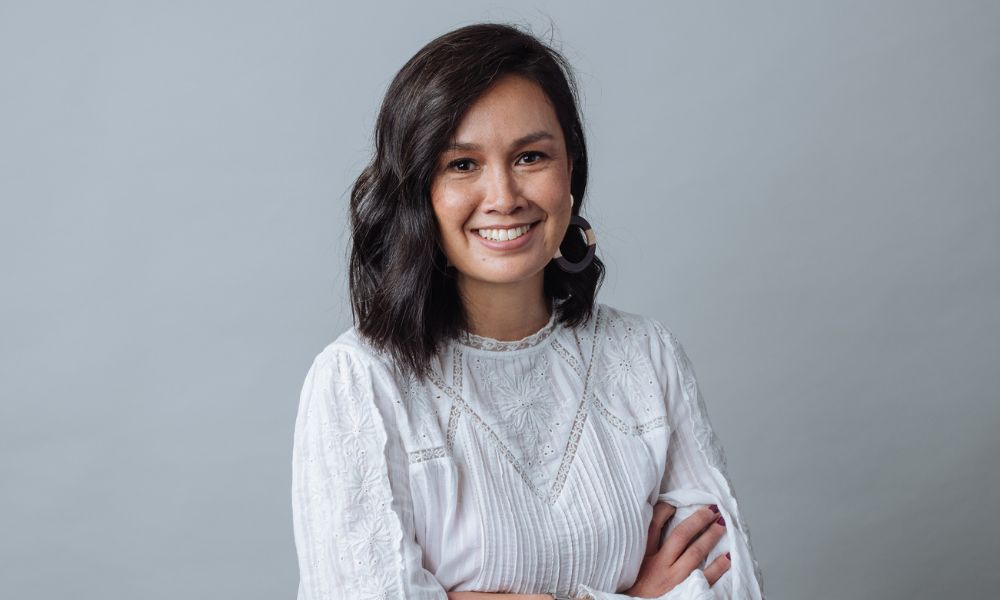FLIP CEO: Why a former doctor became an insurance professional

FLIP CEO: Why a former doctor became an insurance professional | Insurance Business Australia
Life & Health
FLIP CEO: Why a former doctor became an insurance professional
What big insurance challenge is FLIP trying to solve?
Life & Health
By
Daniel Wood
“I’ve gone from doctor to running an insurtech business which is a world apart,” said Kathleen Weaver (pictured above).
Weaver is CEO of FLIP Insurance. She helped start the on-demand accidental injury insurance firm two years ago through a partnership between not-for-profit health fund HCF and global tech firm BCG Digital Ventures. With support from HCF CEO Sheena Jack, Weaver led the HCF team.
“I kind of love that insurance is so complex,” she said.
However, she did train as a doctor. Insurance Business asked why Weaver ended up in insurance, especially given the time and commitment she invested studying medicine?
“I loved med school and all of the medical content – which started at high school where I really enjoyed all the science subjects,” she said. “But working as a doctor is really different.”
Despite her engaging manner, Weaver said she is naturally “very introverted.”
“If you think about the hospital setting, you’re dealing with patients all day, medical teams, nurses – and I just found that so draining,” she said. “I realised that I’m not a people person in that way.”
After two years as a practicing doctor she was also about to enter a specialty training program which involves many years of commitment, she said, and “you’re shipped around the country.”
“I felt like if I wasn’t going to have a lot of control over the next 10 years of my life, I’d need to really love it and I just didn’t,” said Weaver.
The decision to leave medicine was “relatively easy.”
“I don’t regret it at all,” she said. “Doctors love to complain a lot as well and I didn’t want to be a complaining doctor!”
She also said the idea of a “linear career trajectory” has changed in recent years.
“When you choose something out of school, you’ve really got no idea what working in that industry is like and that should impact people’s career decisions,” said Weaver.
It was back to university to “figure out what else was out there.”
“Being a doctor, I couldn’t even read an article in the Financial Review and understand what was going on,” she admitted.
During a master’s in economics a possible career in strategy consulting started to take shape. A fellow ex-doctor who worked at giant consulting firm, Bain & Company, told her that strategy consulting was somewhat like being a doctor except instead of diagnosing patients, you diagnose a business’s problems and help solve them.
She started working at strategy consulting firm, L.E.K. Consulting. Some of the jobs included healthcare-related assignments.
“It was exactly like that guy explained to me,” said Weaver. “Companies come to consulting firms with problems and there’s a team of people that try and help them solve it.”
She enjoyed these analytical, problem-solving tasks and the sheer variety of industries she was able to work with. After three years between Sydney and Boston, the hours and lifestyle prompted a move to HCF who were building a strategy team.
“It seemed like an opportunity where I was able to combine health and strategy into one so that’s how I ended up in health insurance,” said Weaver. “It was very much HCF as a health care company rather than an insurance company, even though, of course, they are a big insurer, but they do focus on the health outcomes of their members.”
Healthcare underinsurance and affordability
She said one of the challenges HCF faces is affordability and health care.
“Health care expenses in this country are rising a lot faster than inflation and that trickles down fairly directly into insurance and then needing to raise premiums each year to pay for that,” said Weaver.
She said HCF continues to work on how to make healthcare more affordable so premiums are also more affordable.
“One of the first pieces of work I did was looking at how should HCF be thinking about vertically integrating into other healthcare areas in order to make them affordable for its members?” said Weaver.
The result was HCF providing dental and eye care centres.
“Expanding the network of those centres was the very first piece of work I did,” she said.
Weaver said, personally, she’s still “an avid user” of HCF dental care services.
HCF has always faced the challenge, she said, that 50% of Australians do not have health insurance.
“That’s for many reasons,” said Weaver. “It might be because they’re philosophically opposed to private healthcare or because it’s too expensive or irrelevant to them.”
However, she said that when this group of Australians have to use the public health system, “they’re often surprised at what Medicare doesn’t cover them for.”
“So you might go to a public emergency department and be covered for that but if you need physio afterwards, Medicare doesn’t cover you for that,” said Weaver.
She said follow-on health-related expenses can build up.
“Knowing that about the health system, we wanted to design something that was able to meet the needs of that set of people,” said Weaver.
Did you start your own insurance company? What issue or challenge did you see your firm solving? Please tell us below
Related Stories
Keep up with the latest news and events
Join our mailing list, it’s free!






